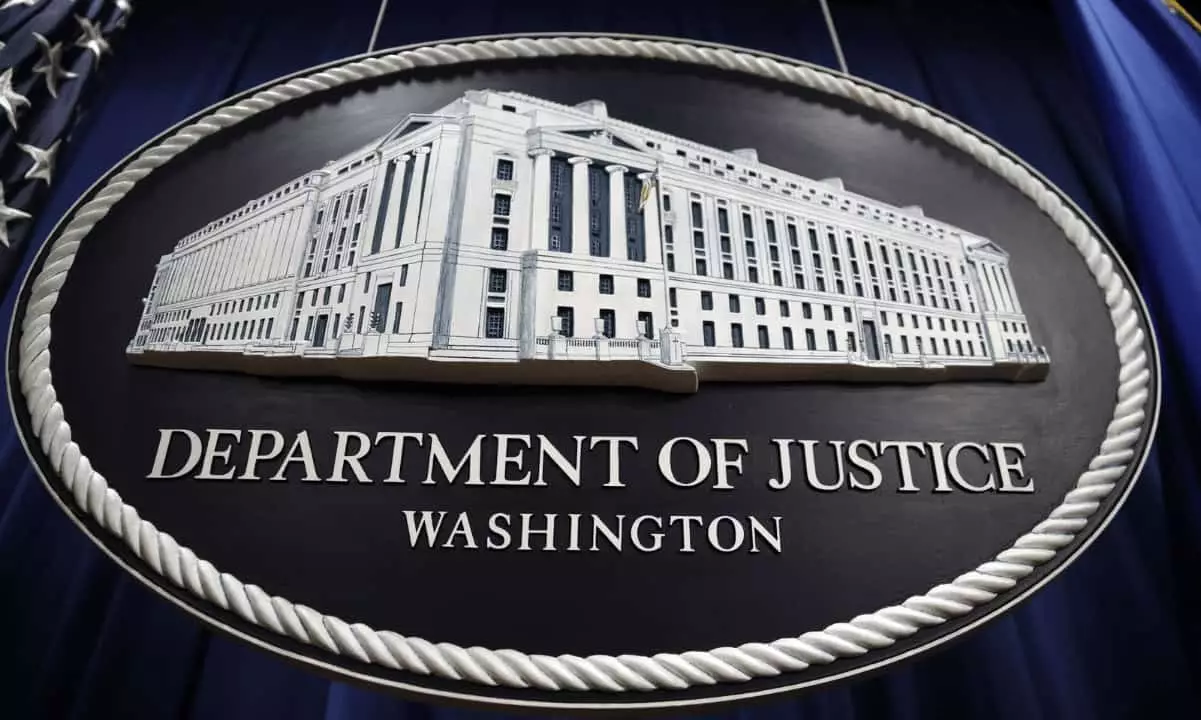In the ever-evolving landscape of digital finance, the story of Maximiliano Pilipis serves as a stark reminder of the potential pitfalls associated with the unregulated cryptocurrency market. At 53, this former resident of Noblesville, Indiana, has recently found himself entangled in a federal indictment that accuses him of serious financial crimes, specifically five counts of money laundering alongside two counts of failing to file his tax returns. This narrative unveils the intricacies of Pilipis’s alleged operations and the broader implications for the cryptocurrency industry in the U.S.
Pilipis, according to court documents, initiated his cryptocurrency venture, AurumXchange, in 2009, operating until 2013. The platform was designed to facilitate the exchange of Bitcoin and other virtual currencies into U.S. dollars and numerous international currencies. Although it appeared to offer a legitimate service, the lack of licensing and regulatory oversight raised red flags almost immediately. During its operational years, AurumXchange claimed to have conducted over 100,000 transactions, amassing an estimated total of $30 million in exchanged funds.
Much of this wealth stemmed from the fees charged by the platform, allowing Pilipis to accumulate over 10,000 BTC, valued at around $1.2 million during that period. However, the allegations suggest that the operation was built on a foundation of non-compliance, undermining essential federal safeguards designed to protect the financial system from illicit activities.
Perhaps most alarming is the reported connection between AurumXchange and Silk Road, a infamously dark online marketplace that thrived between 2011 and 2013. Silk Road was notorious for facilitating the sale of illegal goods, including drugs, while enabling users to transact securely and anonymously through cryptocurrency. The U.S. Department of Justice asserts that AurumXchange was utilized by Silk Road customers to convert their cryptocurrency winnings to fiat, effectively masking their identities and engaging in money laundering.
This link to such a high-profile criminal entity paints a troubling picture of Pilipis’s operations. By enabling transactions from anonymous accounts, some reportedly tied to the now-defunct Silk Road, the indictment suggests that Pilipis may have knowingly facilitated illegal financial activities, further complicating the legal ramifications of his actions.
Concealment and Investment Strategies
The indictment provides further insight into Pilipis’s post-AurumXchange activities. After ceasing operations in 2013, he allegedly initiated a series of transactions to obscure the origins of his Bitcoin proceeds. By 2018, he was converting portions of the digital currency into U.S. dollars and investing in real estate in Arcadia and Noblesville. This attempted redirection of funds signifies a conscious effort to utilize illicit gains in a seemingly legitimate manner while also embracing the opportunities presented by the real estate market.
Interestingly, despite generating hundreds of thousands of dollars in income over 2019 and 2020, Pilipis reportedly neglected to file his federal income tax returns. This failure to comply with basic tax regulations further complicates the case, raising questions about his financial acumen and ethical responsibilities.
Government Response and Legal Implications
The urgency of handling illegal activities associated with digital currencies has been emphasized by government authorities, including U.S. Attorney Zachary A. Myers, who stated that combating the criminal misuse of cryptocurrencies represents a critical priority for the Department of Justice. As cryptocurrency becomes increasingly normalized in financial transactions, the need for regulatory clarity and compliance is more pressing than ever.
Pilipis now faces a maximum sentence of 10 years in federal prison if found guilty of all charges, which includes severe financial penalties. Ultimately, his case not only tests the boundaries of personal accountability in the cryptocurrency realm but also challenges existing regulatory frameworks and their effectiveness in curbing financial crimes.
Maximiliano Pilipis’s case serves as a poignant intersection of innovation and regulation within the world of cryptocurrencies. As the digital currency ecosystem continues to evolve rapidly, the need for compliance, oversight, and ethical engagement becomes more imperative. This situation illustrates the consequences that can arise when individuals or enterprises seek to navigate these complexities without adhering to established laws and principles. The unfolding developments in this case will undoubtedly serve as an important learning lesson for aspiring entrepreneurs in the rapidly growing world of virtual currencies.
















